
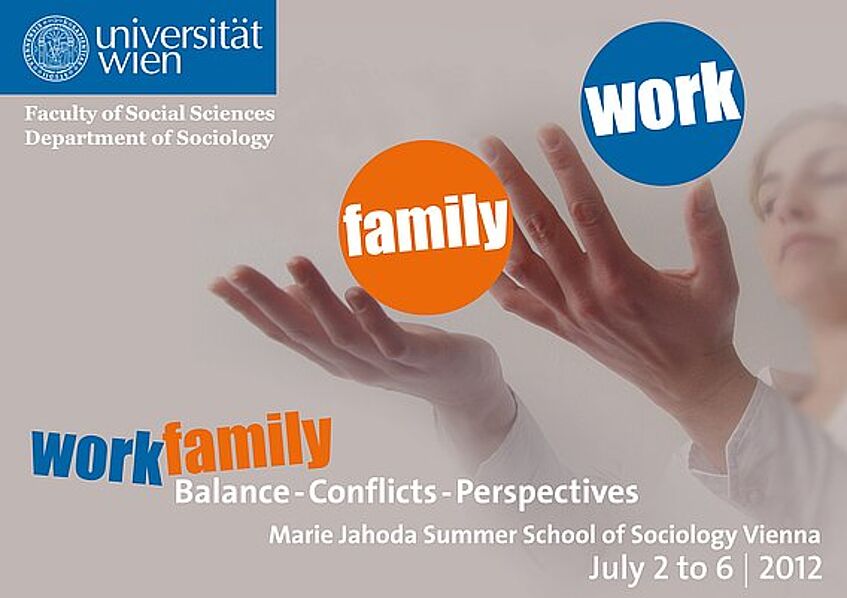
Marie Jahoda Summer School of Sociology Vienna
July 2 to 6 | 2012
Reconciling work and family life is a key challenge in contemporary societies. Many families face conflicts when attempting to meet the requirements of work and home. However, searching for a balance does not only concern individuals and families. It is also an issue for workplaces and social policies. Thus, approaching this topic from different levels of analysis (micro / meso / macro) is a particular focus adopted by this Summer School. At all levels, specific aspects are brought into discussion, such as family members’ perspectives, childcare, parental leave policies, time use, career patterns, life course, family forms, gender roles, and labour market flexibilisation.
The Marie Jahoda Summer School 2012 aims to advance research and to promote young scholars. It offers PhD students the opportunity to get novel input on topics related to work and family, to compile feedback and guidance for their own research, and to establish networks with other researchers in the field.
The Summer School will be hosted by the Department of Sociology, Faculty of Social Sciences, and is funded by the University of Vienna
“It was apparent, in fact, that working mothers were increasingly fitting the profile of working fathers. But those fathers, far from cutting back to help out at home, studies told us, were now working even longer hours. […] How could parents balance jobs with family life?”
(Arlie Hochschild, The Time Bind)
Programme Committee:
Dr. Caroline Berghammer
Dr. Ulrike Zartler
Prof. Roland Verwiebe, Head of Department
Prof. Rudolf Richter, Dean
Administration:
Eva-Maria Peter, BA
Pictures
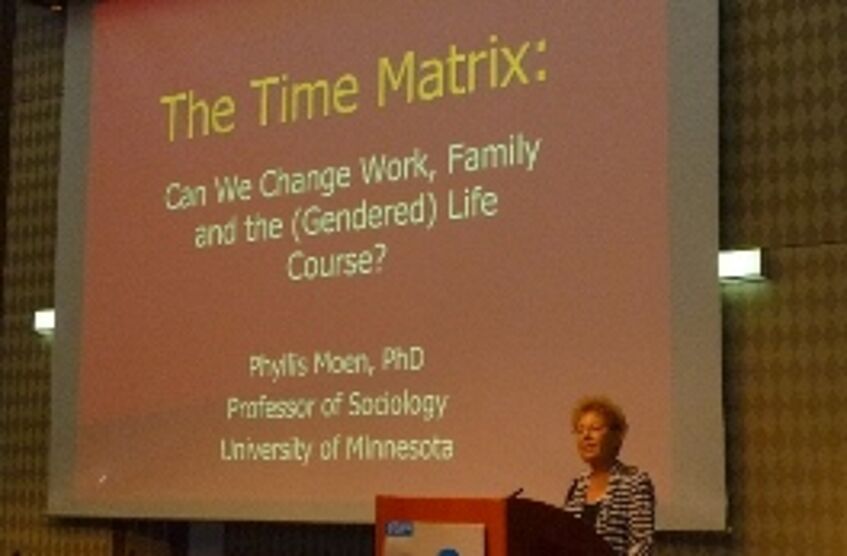
Keynote speaker Phyllis Moen (University of Minnesota) poses the crucial question: “Can we change work, family and the (gendered) life course?”
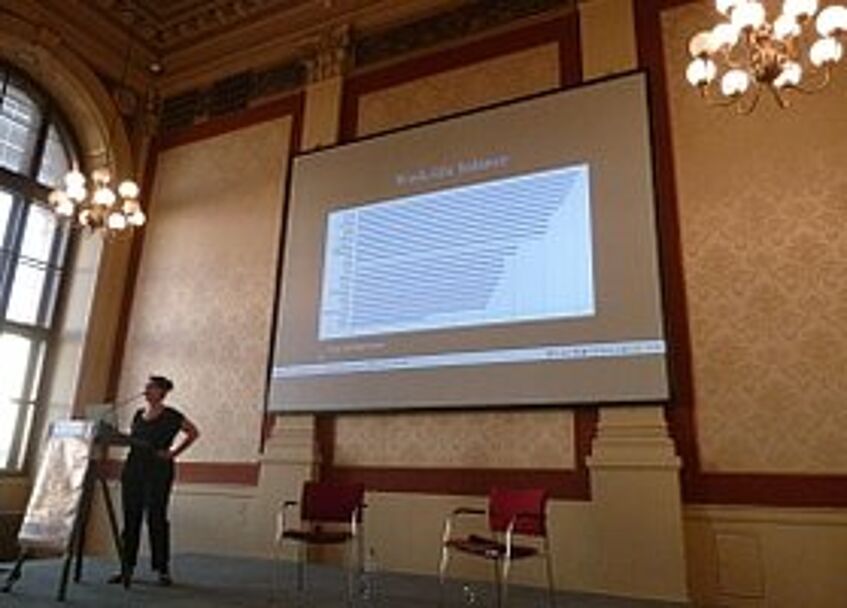
Melinda Mills’ (University of Groningen) keynote speech addresses the “big four” influencing fertility: national context, job, partner/household and individual factors
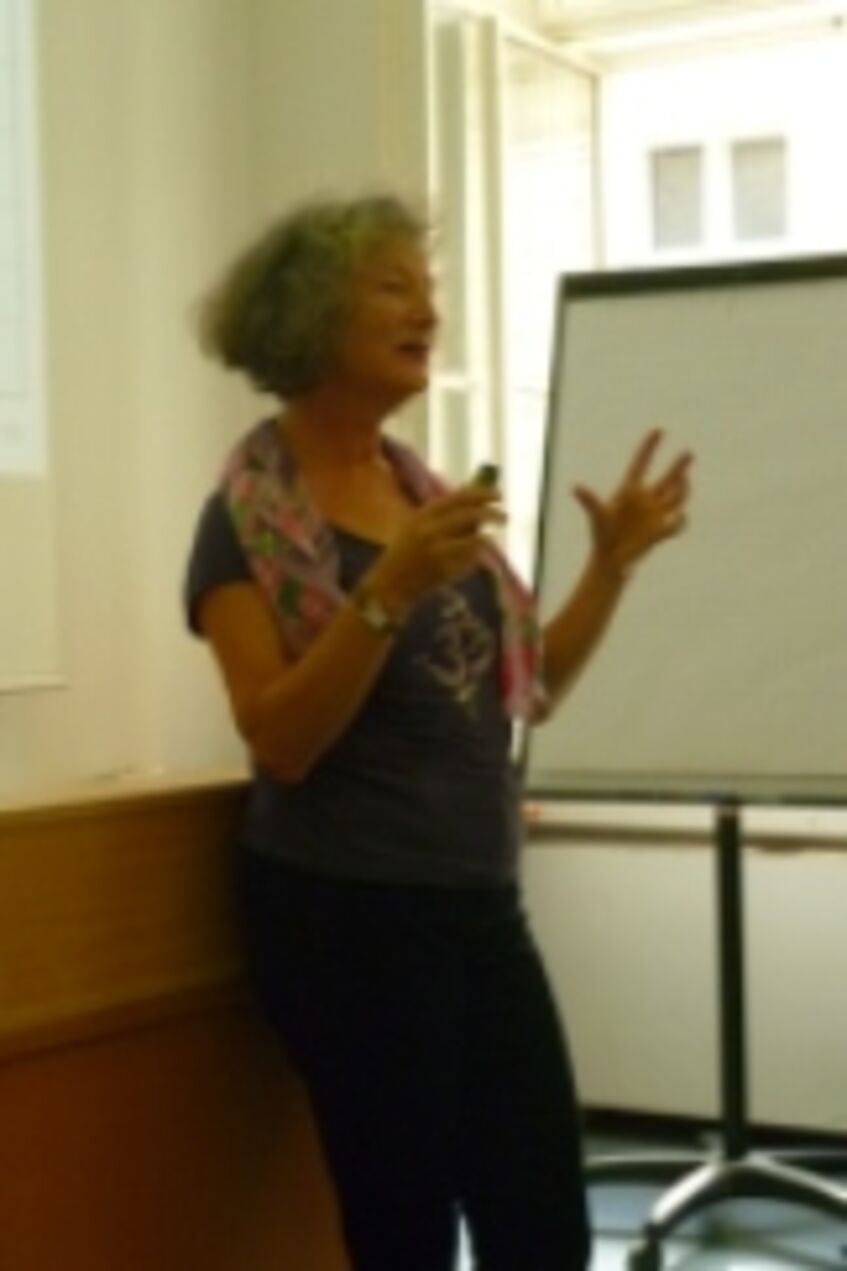
Ilona Ostner (University of Göttingen) challenges family policies: Are they just old ideas in new policies?
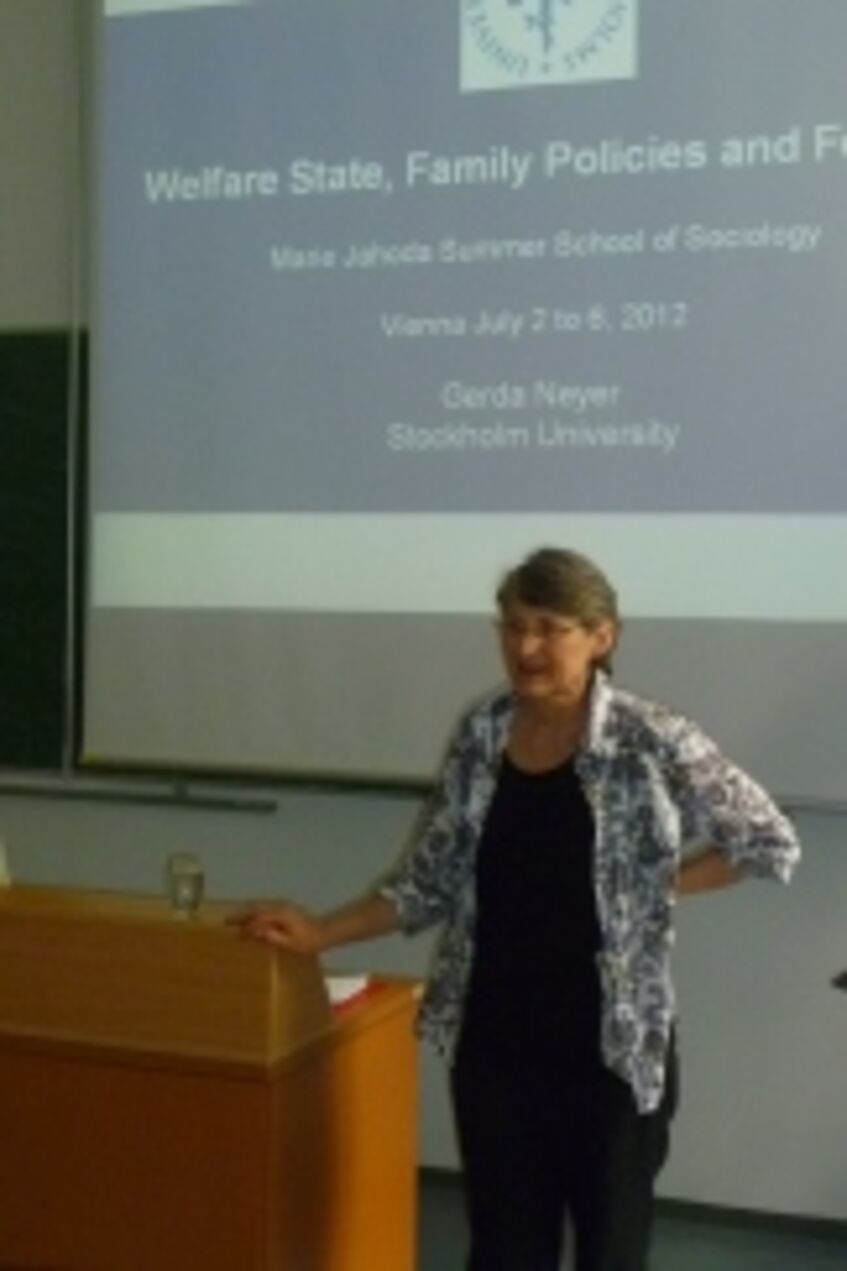
Gerda Neyer (Stockholm University) starts with an inconvenient question: Can we actually measure the impact of policies on people’s behaviour?
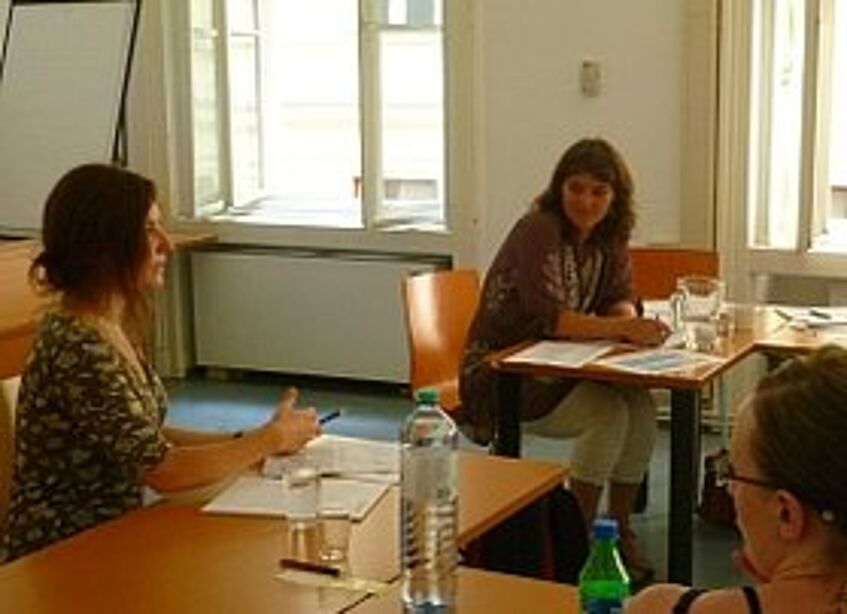
Laura den Dulk (Erasmus University Rotterdam) adds the perspective of workplaces to the discussion
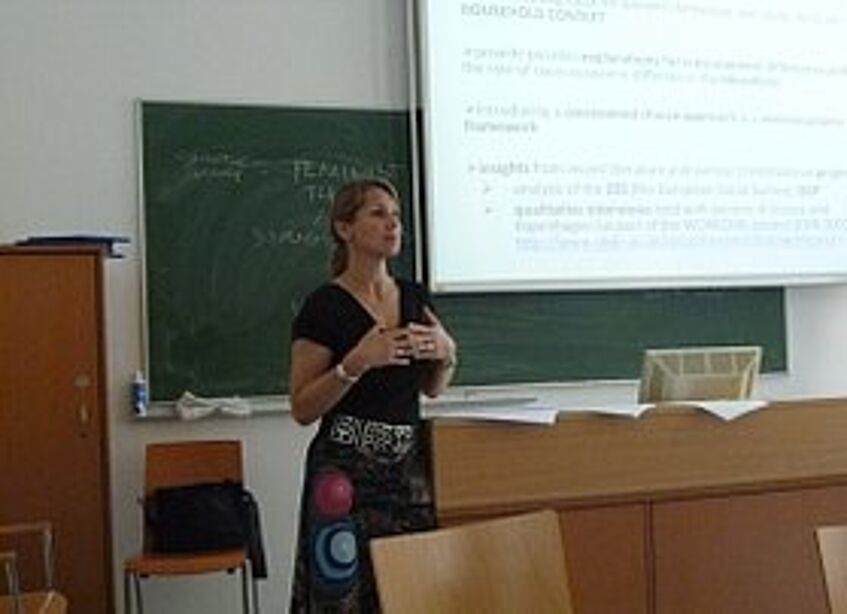
Barbara Haas (Vienna University of Economics and Business) shows how seemingly individual decision-making is constrained by the country context
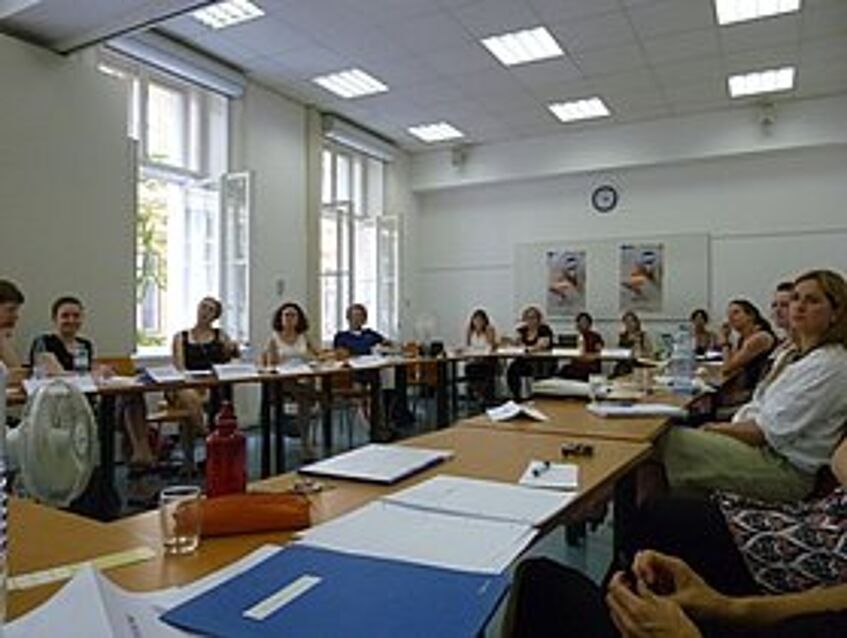
Students and lecturers came from 9 countries (Europe, Australia and the US)
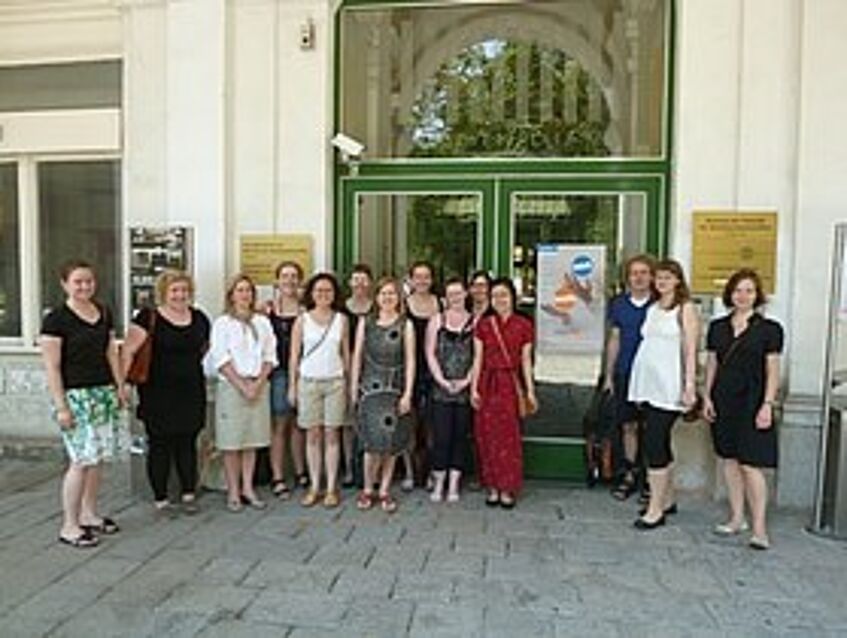
The Marie Jahoda Summer School of Sociology: a perfect opportunity to get novel input, compile feedback and establish networks with other researchers
